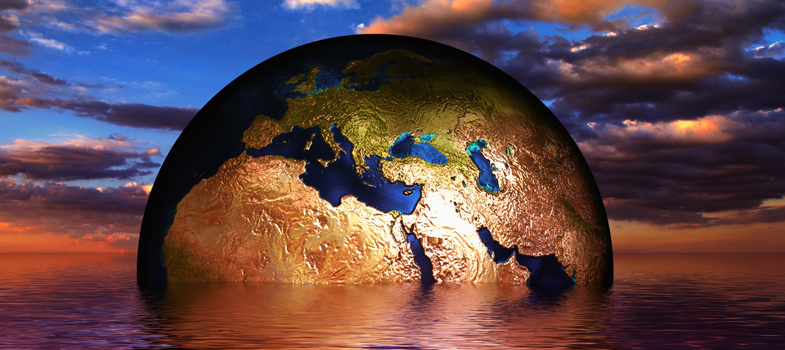2.2 Understanding our emotional responses to climate change: disconnection, projection and repression
Becoming more aware of our emotional responses to the world can raise our anxiety levels. It is then tempting to return to the comfort apparently offered by modern industrial society, which can disconnect us from the alarm signals of a world in distress.
As well as disconnecting from feelings, we might also ‘project’ feelings out onto other people. This means we attribute our own difficult feelings to someone else. For example, if we feel angry with somebody, rather than ‘owning’ that difficult feeling – which could be painful – we might instead accuse them of being angry with us. This can actually deepen our own anger and so the dynamic can continue and cause considerable pain for both parties.
It is interesting to explore which feelings might be difficult to tolerate, and why. British people are famous for their ‘stiff upper lips’. This means that there is a culture in Britain of not wanting to express strong emotions. This can also be referred to as ‘repression’, where painful emotions are held inside. This tendency will be moderated by the particular family we are brought up in, as well as our personality.
Disconnection, projection and repression are all emotional responses that help us cope, but often in a way that is personally, socially and ecologically damaging. Ultimately these responses make our situation worse. We find such psychological processes at work in social oppression. For example, during the time of colonial slavery in the seventeenth and eighteenth centuries, white people were taught that black people were less than human. This enabled them to treat black people as objects that did not have feelings. Similar processes were at play in the Nazi holocaust. The process of dealing personally with such projections is painful, because it forces the perpetrators to come to terms with their own destructive tendencies.
In a similar way, it is the norm in industrial cultures to view the ‘natural’ world as a collection of resources, a set of unfeeling objects, for our exclusive use. Wild nature is often feared as dark and dangerous or, conversely, romanticised and idealised. Exploring our projections onto the natural world, and finding a way of respecting all life, is a difficult process because it challenges deep-seated notions about modern human identity, which is, in part, created by seeing ourselves as separate from, and superior to, the rest of nature.
2 Impacts of climate change on our psychology
